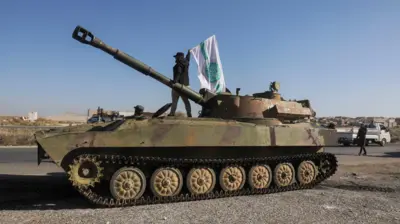We've updated our Privacy and Cookies Policy
We've made some important changes to our Privacy and Cookies Policy and we want you to know what this means for you and your data.
Air ambulance first in UK to carry blood
Top Stories
- Author, Neil Bowdler
- Role, Health reporter, ≥…»ÀøÏ ÷ News
London's Air Ambulance is carrying blood supplies from Tuesday - the first such service in the UK to do so.
The innovation has been made possible due to a new refrigeration unit used by the British and American military.
It will allow blood transfusions to be administered on the scene of accidents, rather than later in hospitals.
London's Air Ambulance believes hundreds of lives could be saved, and regional services are looking to follow suit.
Top Stories
The service also had to assure the authorities that precious blood stocks could be kept safely and that they could be tracked adequately beyond the confines of the hospital.
"I really believe that us carrying blood routinely is going to make a big difference to many of our patients," Dr Anne Weaver, lead clinician with the service, told ≥…»ÀøÏ ÷ News.
"We attend about 90 patients a year who are bleeding to death when we get to them.
"About 160 patients don't actually make it to hospital on top of that 90, so I think for about 250 patients we're going to give them a better chance of survival by carrying the blood with us to scene."
The blood is kept in a "golden hour" box, which can keep four units of O-negative blood (which can be transfused into any patient) at a steady 4C for up to 72 hours. Unused blood can be returned to hospital stores, so no stocks are wasted.
"We're going to recirculate the blood back into the hospital where it will be used. It's emergency blood which is a precious resource and we do rely on people giving blood to make sure we don't ever run out of it."
Blood will also now be carried by London's Air Ambulance's rapid response vehicles, which operate by day and at night when the helicopter cannot fly.
Zane Perkins, a trauma surgeon who works both in the air and on the ground with the service, says transfusing blood on the scene can transform pre-hospital care.
"About half of people with traumatic injuries who die, die from bleeding," he said. "Often stopping the bleeding can only be done in hospital, but one of the ways to buy yourself time is to replace the blood they're losing. I think carrying blood is a great step forward."
Last year, London's Air Ambulance treated 2,059 patients, of which some 716 involved road traffic accidents and 571 involved stabbings or shootings. Falls accounted for 456 cases attended. The service is a charity, like other air ambulance services in England and Wales.
The Association of Air Ambulances which represents air ambulances throughout England and Wales, welcomed the development.
Top Stories
Dr Ramzi Freij, association spokesman and medical director for air ambulance services based in Kent and Essex, said London had the advantage of a helipad on top of the Royal London Hospital, which made access to and monitoring of blood supplies easier.
Other air ambulance services, which carry paramedics more commonly than doctors, would also have to seek permission for the paramedics to conduct blood transfusions.
Nevertheless, Kent and Essex, who carry doctors, were now looking at carrying blood and other blood products such as plasma and platelets, with the plan to hold the blood supplies at their base.
"It will save lives. Our work is about saving critically injured people, people who are haemorrhaging either from gunshot injuries, road traffic accidents or stabbings, where replacing like with like is really crucial," he said.
He said carrying blood could save lives both in the cities where violent crime is more common, and in rural areas, where ferrying patients back to hospitals for emergency transfusions and treatment can take too much time.
Rare service
Very few air ambulance services carry blood on-board around the world. The US and British military carry blood on their rescue helicopters, while civilian services in Australia have carried blood for some years.
"We have blood storage refrigerators at six of our bases," said Dr Allan MacKillop, chief medical officer with Australia's Careflight Group Queensland.
"The blood is taken on missions where it's use is likely, for example major trauma, and transported in temperature-controlled blood shipper containers. If the blood is not required it can generally be restored for future use.
"The shipper has a digital temperature logger which is downloaded after each mission to ensure safe storage conditions have been maintained."
Australia's Royal Flying Doctor Service also has the capability of carrying blood at selected bases.
Commenting on the launch of the new service in London, Mayor Boris Johnson said: "London's Air Ambulance has an international reputation for pioneering medical procedures which have been adopted around the world.
"It provides a great service across the capital and being able to carry blood on board means the team will be able to save even more lives."
Top Stories
More to explore
Most read
Content is not available








